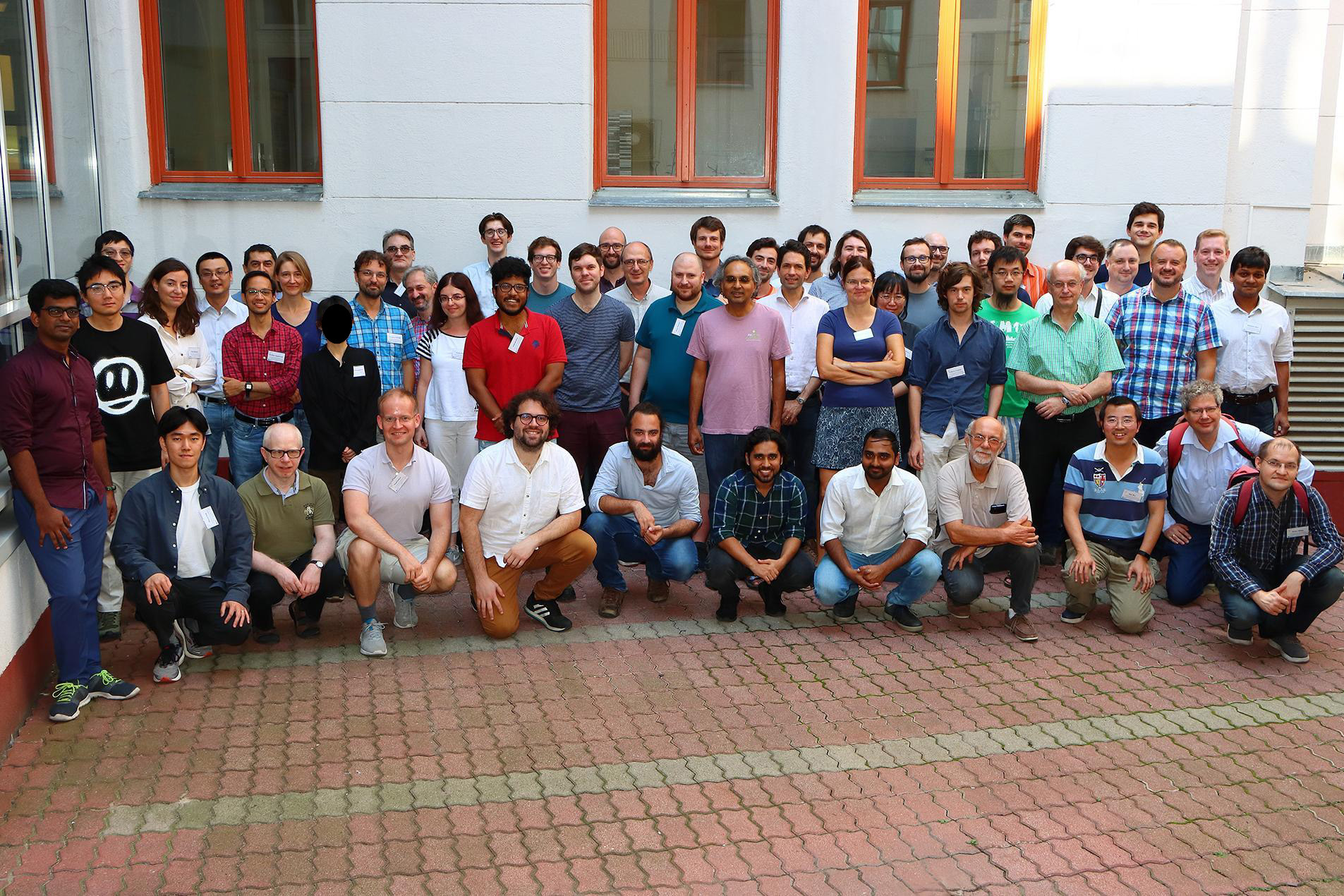Automorphic Forms Conference
Description
Invited speakers:
- Valentin Blomer (University of Bonn)
- Kathrin Bringmann (University of Cologne)
- Farrell Brumley (Sorbonne University Paris Nord)
- Jack Buttcane (The University of Maine)
- Pierre Colmez (Paris VI University)
- Adrian Diaconu (University of Minnesota)
- Peter Humphries (University of Virginia)
- Kiran S. Kedlaya (University of California San Diego)
- Min Lee (University of Bristol)
- Jasmin Matz (Einstein Institute)
- Djordje Milićević (Bryn Mawr College)
- Paul Nelson (ETH Zürich)
- Vicentiu Paşol (Institute of Mathematics "Simion Stoilow")
- Ian Petrow (University College London)
- Alex Popa (Institute of Mathematics "Simion Stoilow")
- Danylo Radchenko (ETH Zürich)
- Nicole Raulf (University of Lille)
- Abhishek Saha (Queen Mary University of London)
- Benjamin Schraen (Université Paris-Sud)
- Raphael Steiner (ETH Zurich)
- Jesse Thorner (University of Illinois Urbana-Champaign)
- Matthew Young (Texas A&M University)
Synopsis
Automorphic forms play a central role in modern mathematics. They were discovered in the XIXth century in connection with the representation number of quadratic forms. This number-theoretic origin was followed by a fast evolution, resulting in a rich interrelation between algebraic geometry, representation theory, complex analysis, partial differential equations, graph theory – among many others.
The research of automorphic forms has not slowed down. Some emblematic recent results have successfully drawn the attention of the whole mathematical community: the proof of Fermat’s Last Theorem and the higher-dimensional sphere packings must be named here. Also, some of the most important problems and conjectures of the whole mathematics belong to the area: two (out of seven) Millennium Prize Problems are about L-functions (which, at least conjecturally, all originate from automorphic forms), and we cannot forget the enormous Langlands program, a far-reaching building of profound theorems and open conjectures in arithmetic.
The research in the theory of automorphic forms in Hungary was boosted by the Lendület Grant won by Gergely Harcos in 2017. The research group founded by him planned a conference for 2020, but it was unfortunately canceled because of the pandemic. However, we were all determined to organize the conference when it is possible.
In 2022, the newly founded Erdős Center of the Rényi Institute decided to devote the fall semester to the theory of automorphic forms. As a result, we could not only organize the long-planned conference, but it was preceded by a summer school in the area, where prestigious speakers gave minicourses to introduce young mathematicians to the subject. After this summer school, the conference finally took place September 5–9 in the Rényi Institute.
Altogether, 21 invited speakers gave one-hour talks. Since the Hungarian automorphic community is itself biased towards the analytic theory, most lectures belonged to this subject of the area (including subconvexity estimates on L-functions, the arithmetic quantum chaos, and bounds on automorphic forms), but the algebraic-geometric branch (the p-adic Langlands program) of the area was also represented by a small number of leading experts in the field.
Besides the invited talks, we devoted an afternoon to contributed talks, where the younger generation could lecture in a shorter time frame about their recent research. This finally counted 15 speakers.
On the social level, we organized coffee breaks and a wine&cheese party with the help of the staff of the Rényi Institute, and also a conference dinner for the invited speakers.
Looking back, as far as we can judge, the conference was very successful. The researchers discussed mathematics, exchanged their ideas and could enjoy spending time together after the separation forced by the pandemic. Hopefully, we will see important theorems growing out from collaborations initiated or continued in Hungary.

Application is now open. Application deadline: May 31, 2022.
The Erdős Center covers full lodging for a limited number of participants. Please indicate in the application form if you wish to apply for this support.
MSc and PhD students applying to the conference should also ask their supervisor to send a short recommendation (typically a few sentences) to the contact e-mail address automorphic.forms.22@renyi.hu.
Link to the registration web-form of the conference and for selected junior participants, there is a possibility to give a short talk (15 min). If you are interested please fill out the second form below:
